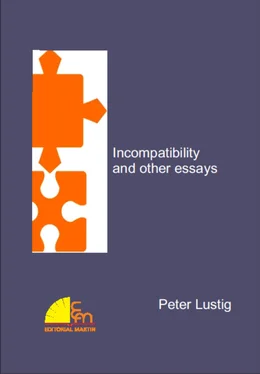Of course not! These legends were devised to bring such somewhat outmoded authors closer to the current generation, in order to link up the present with the past. If anything, to give a sense of continuity to tradition and to make it worthwhile to want to die fighting to preserve it. What if Shakespeare had been translated into Russian and Chekhov into English, before they were introduced to the public? Would it make any difference as regards the message their work conveys, or would not praise continue to be lavished upon them for their unwavering universality? Now, one wishes to ask, if the chief works of literature, or any other art form, are detachable from the background upon which they were conceived, can all the paraphernalia with which the discussion on cultural identity is adorned be anything but so much bosh? Does it not appear that great art lies in however it may appeal to a multifarious public and that it has no connection whatsoever with ethnocentric self-advertising? Do Don Quixote, Sancho or Dr. Faustus have to be either Spanish or German? Why would Nietzsche -the diehard mouthpiece for Germanism- care to remark, in writing, that Dostoiewski had been the only author from whom he had learned anything new about psychology, seeing that he had only been able to read him in translation and they shared no common tradition? Would it not be fairer to assume that communication between people of different nationality was effective because they were all part of the same culture, in spite of the language barrier and the conditioning of history? Just one step farther, the stage would be reached where the uniqueness of a culture would rub off on the identities that make it up and they might all be included in a single enlarged conundrum, presenting an ethical challenge all around. Was any such attempt ever made before?
VIII.Education cum Therapy
In a sense, this title is begging the question. It has long since been acknowledged that education must be tailored to suit each individual. Nobody would put forward the notion that there is anything educational about picking a batch of disorientated young people and casting them into a lot, in order to lead them by the nose in a given direction, in the tradition of the old school tie and the school spirit. This would be the policy to go about getting people organized for direct action. So much for the freedom of the individual.
Yet, from the point of view of basic socialization, education was traditionally conceived as a method to control groups that had become too large and diverse for effective policing. First and foremost among the more successful approaches to this end was placing education in the hands of the priests, who -as leaders and legislators- were able to capitalize on all the inbred fears against which the human condition was helpless. Funny as it may sound to contemporary ears, education used to be mainly a form of preaching. In many ways, it still is. But, instead of emphasizing religion, it stresses “nationalism”, which has taken the place of religion, as the latter lost its predicament, for having failed to keep up with the times.
Characterising nationalism is not all that simple; because today it is necessary to accept demographic mobility, as an outcome of individual choices made in the light of vast political changes, so that no plural nation-state can be expected to represent a unique tradition. It must, of necessity, harbour as many as the diverseness of its population may call for, distressful as this should appear to the more conservative element in a society. The alternative would be to dispose of those who remain persistently unwilling to conform: either to have them sent back where they cam from, or to get rid of them in any other way, i.e. mass deportation or mass extermination.
Aside from the measure of flexibility required to avoid treading on the toes of conventionality, there is not much else that can be demanded of immigrants entrenched in a defensive position, to preserve their identity. Not because some were bent on superimposing their own customs upon those of their hosts, or because they should claim that time was working in their favour, given their greater fertility rate, can either of these circumstances sidestep the fact that, once a stage of extreme incompatibility was reached, murder might still be the best answer.
Even if the above mentioned situation comprised entire “civilizations” and everyone realized that warfare on such a grand scale should be suicidal, there would be no way to stop the trend of conquest through popular encroachment, especially since universal suffrage is supposed to hold in the balance what is acceptable and what is not. The “liberal” West is up against a fait accompli even before the debate with Islamic fundamentalism has been inaugurated. And this is so, because it is being addressed along the lines that were handed down by history and not because it should be in the interest of all sides to find common ground upon which they might possibly temporize. Let it be supposed, for a minute, that the prevailing notions on fair dealing are held in suspense (as happens while a war is on, so that such an interlude would definitely not be any the worse, save for the absence of “blood and tears”) and that people were to go about their pursuits bearing in mind only their own interests. A suicidal religious fanatic would be classified as a strait-jacket case and dealt with accordingly, in all likelihood much to the relief of moderate Islamists everywhere. If these dangerous maniacs were not targeted by a drone before they were able to make a move, they could be put away safely in an out of the way place like Guantánamo, right in the backyard of another crew with a similarly intolerant, though ideologically distinct, disposition. (That Cuban style communism should sympathize with Islamic fundamentalism is not surprising, seeing how both hierarchically structured parties stand together everywhere else in the world.)
Now, then, if insurgency, as such, can be attributed to a subtle form of aggression against “freedom”; whereas it can be said that “communism” was forced to collapse economically under the strain of the arms race -making a military showdown between the U.S. and the Soviet Union redundant-, why should it not be possible to quell the Islamic threat along similar lines?
It goes without saying that nothing is going to be accomplished without investing heavily; not so much in weapons as in providing jobs. If people can be persuaded that they will be able to look after themselves, they will be prepared to pull their weight, rather than gamble on the outcome of war. (That is, assuming that the people under consideration are the rational sort, not the fanatics.) Why would anybody want to join the maniacs, unless he believed he could get his due by pulling a fast one? Could such a person not be persuaded to think twice and see what he stood to lose, unless he happened to be in such a difficult position that he would not care to listen? How badly off are the Muslims on their own ground? Does that account for their embarking upon the “conquest”of Europe in search of jobs? Or can anyone imagine that, once they have become numerically powerful enough to achieve political prominence, the whole of European science and technology would fall into their hands, automatically, like the Middle Eastern oil reserves, and they should become the arbiters of civilization, without more ado?
Clearly, it is hard to envisage such a situation. Whatever criticism it may deserve, European savvy rests upon superior education, as well as on technical know-how that goes back to the late Iron Age (as far as metallurgy is concerned). The Jihad can not compensate for that. (Neither could the retaliatory Jews, although the Jewish bankers held the money-bags. All that came to an end when a meritocracy displaced the bourgeoisie, supported by the remnants of privilege, after 1945.) There can be no doubt that the main feature of Western acumen rests upon technical innovation. Consequently, that is the area upon which education must concentrate. Regrettably, concentrating on technology has given place to the neglect of the more specifically philosophical and humanistic disciplines. This may be why such major problems as finding ways to meet the needs of people, without having to resort to the use of force, have not deserved sufficient consideration, going back all the way to the days when pacifism -as first proclaimed by Tolstoi, at Yasnaia Polyana- failed to produce the desired results, when the “war to end all wars” finished (in 1918).
Читать дальше












